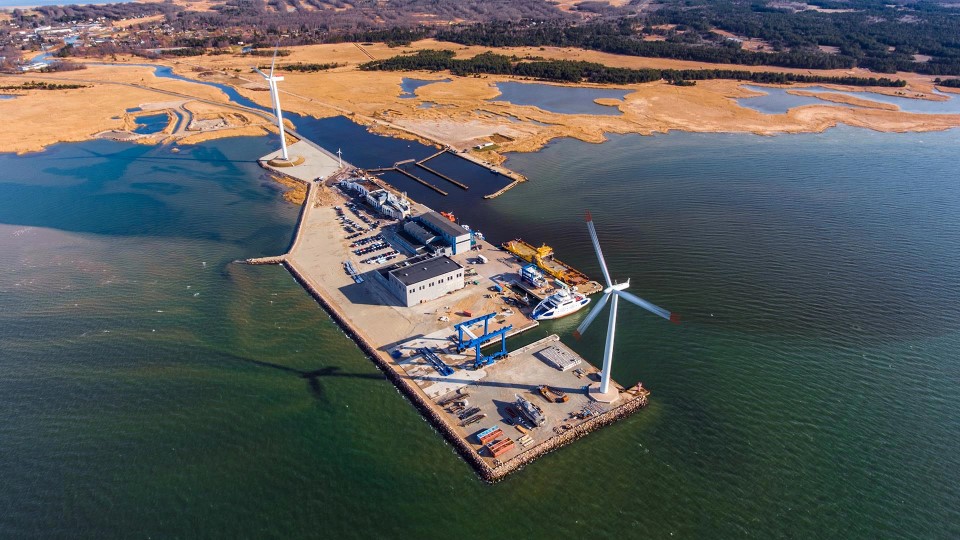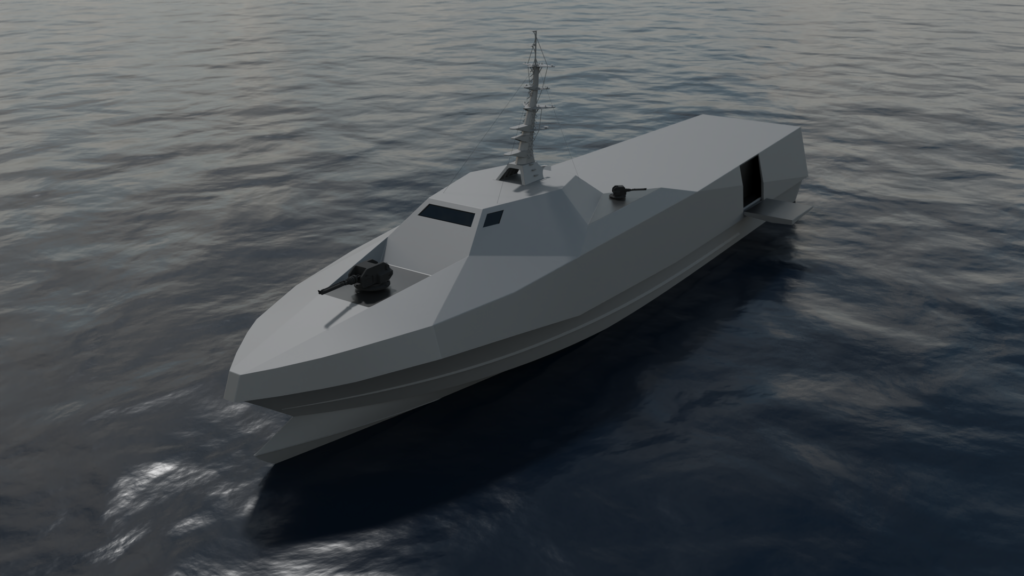The consortium led by Baltic Workboats, an Estonian shipbuilding company, won a funding of €95 million in the European Defence Fund competition to create a new type of naval platform for European fleets; the initiative aims to develop a modular and semi-autonomous surface vessel platform with a remote-control system that could be used across Europe.
The next-generation design, called Euroguard, would be adaptable for various missions and would enable the application of this type of ship in different naval command and support roles.
Baltic Workboats, based in Nasva, Saaremaa, is leading the consortium of 23 companies and research institutions from major European maritime nations such as France, Spain, the Netherlands, Italy, Norway and Denmark. The group received a total of €95 million, with €65 million from the European Defence Fund and €30 million from participating countries and companies involved in the project.
The Estonian shipbuilder is responsible for constructing the test vessel, while all the work will take place in Nasva factory. The prototype’s sea trials will also be conducted in Estonian waters in collaboration with the Estonian Navy.

During the project, a prototype will be developed that can independently perform various tasks. The vessel should be capable of autonomous navigation, obstacle and threat detection, collision avoidance and other mission-specific tasks. The prototype must adhere to the principle of modularity, allowing it to be assembled according to specific needs or tasks. Innovation is also expected in the propulsion system, with environmental sustainability being an important keyword.
“This funding is recognition of our company’s strength and dedication,” Margus Vanaselja, the CEO of Baltic Workboats said in a statement. “We are extremely pleased to participate in such an ambitious project, but we also feel a great responsibility for a project that requires several years of effort from both the company and the team to achieve the set goals. Entrusting the consortium leadership to a company from Estonia definitely signifies an important quality mark for us,” he added.
Collaborating with the Estonian Navy
Baltic Workboats collaborated in the project with the Estonian defence ministry, the Estonian Navy and the Estonian Centre for Defence Investment. The latter is one of the leaders of the project – its role is to represent the interests of the Estonian state and act as a link between other countries and the consortium of companies. Kusti Salm, the defence ministry’s permanent secretary, said in a statement that the Euroguard project was “extremely important” for Estonia.
The prototype is expected to be completed in 2027.
The European Defence Fund aims to strengthen the European defence industry and promote research and development in the field. The fund supports the development of innovative projects and the creation of unified defence capabilities across Europe.

Baltic Workboats is known for its product portfolio of pilot and patrol boats, ferries, tugboats, catamarans and other workboats. In 2020, the company built two brand new patrol boats for the Estonian Navy.

